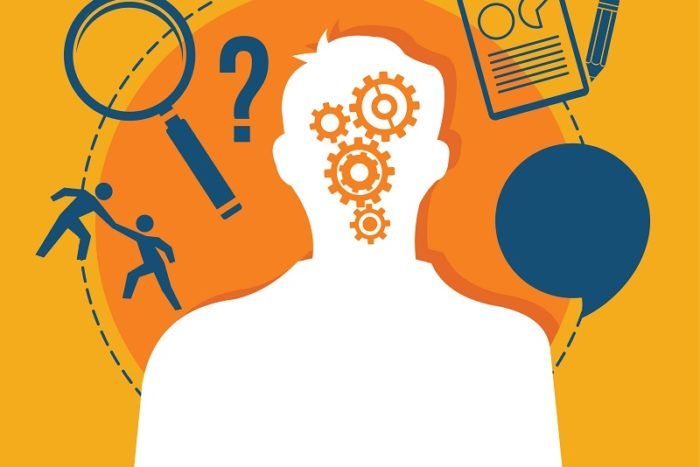My current counseling position is at a local hospital near where I live.

I have found hospital work to be rewarding but very fast paced. There are times that I am running around so much, I forget to take a break and eat (although I do remember to go to the bathroom, so that is good, otherwise, it would get awkward). A major part of this position requires me to do behavioral assessments in the very busy ER of the hospital. This means empathy plays a huge role in my daily interactions.
For those who have never worked in an ER imagine the barely controlled constant chaos, I like to call the ER the 'human manufacturing line.' People are constantly coming through triage, being patched up or sent on to another unit in the hospital or in some cases to a more specialized facility. The flow is incredible and the people who attempt to manage this medical chaos are constantly worried about wait and treatment times. For me, this translates into: we need you here now to do the assessment ASAP because we have another one right behind this one! Did I mention I am the only one there licensed to do behavioral assessments? Yes, there are only one of us per shift, so I tend to get backed up pretty easily.
So how does this relate to empathy you ask? I'm coming to that, try and be patient. Since I work a 'human manufacturing line' I try to complete my tasks as quickly and efficiently as possible, even so, sometimes patients have to wait a few hours before I can see them. Understandably, they can be angry and irritable during the assessments and a trifle sarcastic at times. This, in turn, makes me anxious and stressed, especially since I know there are more assessments on the way. At times, it also makes me angry, if it is the end of a long shift (although I will still smile and be polite, 'fake it until you make it', right?).

Recently, I came down with a severe sinus infection, I lost my voice for a few days and was incredibly congested. I finally broke down after a week of pure misery and went to the hospital's Urgent Care Unit, which is kind of like an ER for cases which aren't life-threatening but still require immediate medical attention. First, I sat in the waiting room for over an hour. The waiting area was packed with miserable people, many appeared to have the flu. I was brought to an exam room after a time where a medical tech took my vitals and made sure I was still alive.
An hour later, an exasperated internal medicine physician did a few quick assessments, asked a few questions and was pretty non-committal about what I was sick with (he needed to run a few tests), fair enough but this took over an hour and required a med tech ramming a long swab up my nose until I teared up, this isn't a pleasant experience (I really felt bad for the flu patients after that). However, finally, I got an answer, severe sinus infection, the doc wrote me a prescription and I was off to the pharmacy. From the time I arrived until I finally left was well over 3 hours.
After this experience, I went home and really thought about what had occurred. I closed my eyes and remembered the feelings of frustration of waiting, of being poked and prodded, the general dehumanization of it all. For the first time in a very long time (luckily, I rarely get sick), I was a patient and I experienced what it must be like for those patients I see in the ER. This made me think of the great Carl Rogers and his seminal work on empathy. For Rogers, the helper cannot truly help another until he or she understands the "internal frame of reference of the individual." This does not mean agreeing with another person's behavior which I believe people sometimes mistakenly think empathy entails.

Without empathy towards others, understanding another person's behavior is limited at best. This was also a basic tenet of my graduate school training in counseling. Yet, while in the midst of the chaos and working conditions of the ER, I had forgotten this very basic counseling tenet. After I was feeling better and back at work, I slowed down, took deep breaths when I felt frustrated and stressed but more importantly, I apologized for their long waits and immediately ask them how they are feeling, after I introduce myself. I attempt to understand where each patient is at, at that exact moment. Does this make my assessments more effective, I really don't know? What I do know is that it seems to put them more at ease. After all, I know what it is like to be a patient. Basic empathy 101, I guess getting that sinus infection was a learning experience.
Unmentionably Satisfying Reads
The Best Spurt of Courage You Will Ever Need
Mentors and Role Models
You Go, Grasshopper
Business Ambition vs Philosophical Growth
It's interesting that Doctors often become patients; I guess you won't be poking nose swabs anytime soon... Smiles
"Without empathy towards others, understanding another person's behavior is limited at best."
That's true. Let me add that without empathy, we can only help people based on our limited perspective. Whereas, with a little empathy, every little action will have great results.
I cannot agree more. In my country (Venezuela) that feeling of empathy from doctor to patient has been lost, mostly in government funded hospitals. Doctors take their job like they are working in a car workshop instead of treating human beings.
I think empathy lets you to be a better professional, because you can have a new perspective of life and your duty from another point of view.